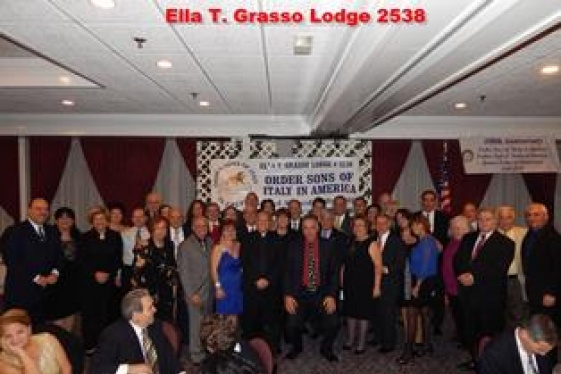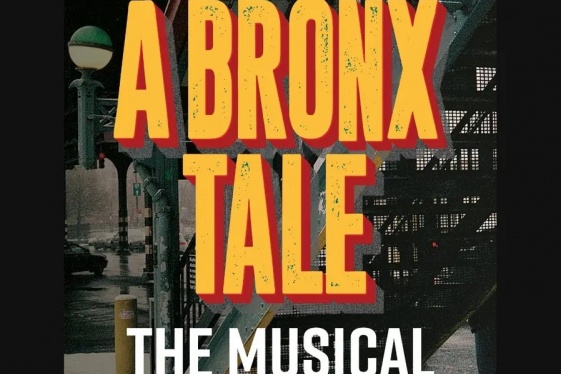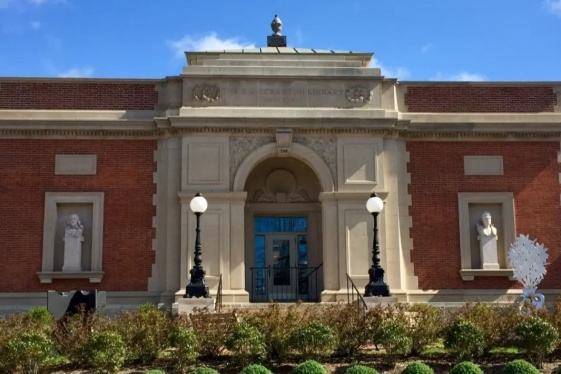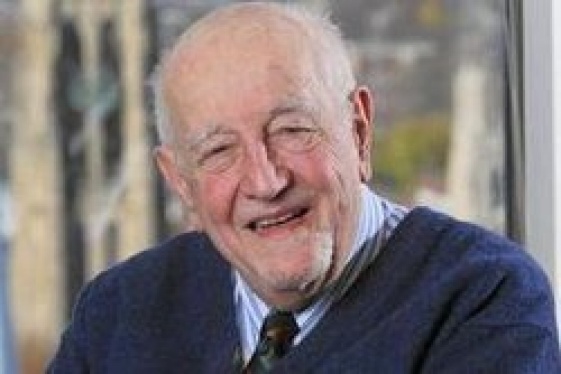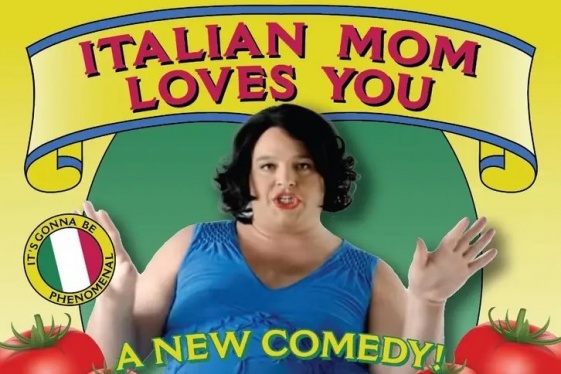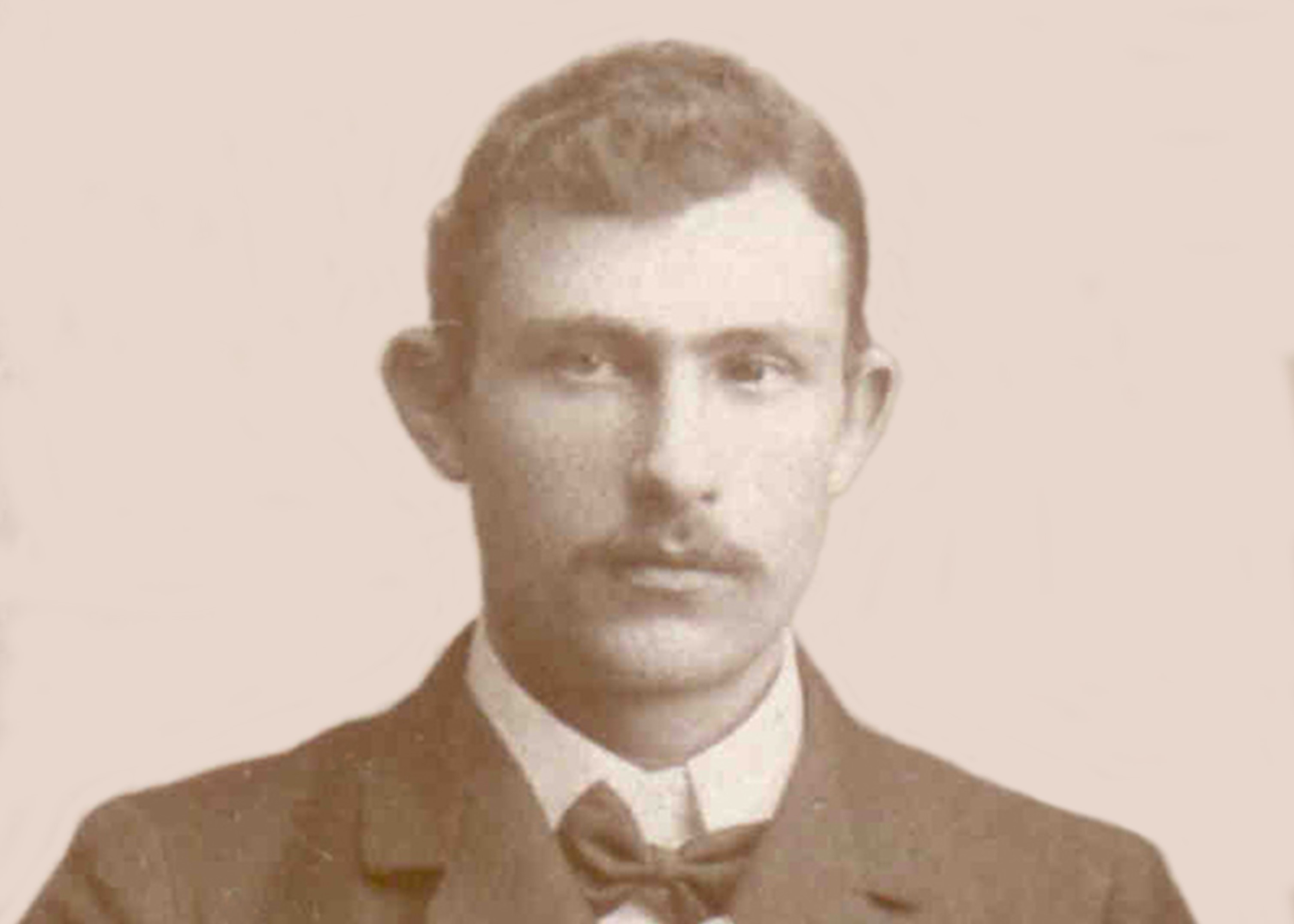
Antonio Rocchetti (1880-1957) – The Italian Anarchist Playwright of New London CT

BY: Michael Rocchetti
I had a wonderful childhood. I was born in 1956 and raised with my two sisters in the industrial seaport town of New London Connecticut. I grew up within earshot of the harbor, and I can still recall how the distant moan of the foghorns and the gentle clanging of the buoy bells would lull me to sleep on those balmy summer nights when the windows were left open to harvest the soft sea breezes. I can still remember the smells of the sea – and could tell when it was low tide – by the smell of the exposed seaweed clinging to the rocky shores.
In New London, I was part of a close-knit extended family with roots in the seaside towns of Fano and Senigallia in the Marche region of Italy. In many ways, New London is much like Senigallia. We had our own little-Italy in New London, and our family and social activities were very Italian - happy occasions where you could always depend on three things: lots of hospitality, lots of joyful commotion, and lots of good food. We didn’t have a lot of money, or a big fancy house, or fancy cars – but we had something much more valuable. We had each other. As I grew older, I realized how blessed I was to be a part of this.
It was probably 1976 or thereabouts when I developed an interest in my family’s history. At that time, I was an engineering student at the University of Connecticut, I had just started dating my wife Roberta, and I didn’t have a lot of free time. However, my Grandfather (Ermenigildo) and his siblings (Sylvio, Leonello, and Wanda) weren’t getting any younger, so I thought that it might be a good time to start asking questions, taking notes, and preserving their stories.
This is what I learned: My Great Grandfather Antonio Casagrande (or Esposto) immigrated to the United States in 1896 at the age of 15. He travelled as an unaccompanied minor overland from Senigallia to Genoa where he boarded a ship bound for New York. From New York he went to New London Connecticut where there was a growing community of Marchegiani living in the Fort Trumbull neighborhood. As a father, I understand how difficult this must have been for Antonio’s parents, and I presume that his parents made prior arrangements to have Antonio sponsored by friends who were already in New London. Antonio started working full-time almost immediately after his arrival in New London. A few years after Antonio’s arrival, his father, mother, and brother immigrated to New London – and they all changed their name to Rocchetti.
Antonio’s father Celestino Casagrande Esposto was an orphan. It was on a Monday night, July 7th, 1845, at approximately 3:00 am, Father Raffaele Angeletti was asleep in the Rectory of a Catholic Church in Senigallia, when he was awakened by the sound of an infant’s cries. He went into the Church and discovered a newborn infant that had been abandoned. That infant was Celestino Casagrande Esposto. As awful as that was – to abandon an infant child like that, I thank God he was not aborted. Otherwise, I wouldn’t be. I am not sure if I will ever know who Celestino’s mother was, but she probably deserves a place in Heaven for what she did, and if I am ever lucky enough to go there when I die, and meet up with her – I will be eternally grateful to her, and will give her a big hug and a kiss! Celestino was baptized later that day by Father Raffaele, with a woman named Catherina, the widow of Angelo Sevieri, as Godmother. There are varying accounts of Celestino’s childhood, and much uncertainty. However, in 1864, at the age of 18, Celestino enlisted in the Royal Italian Army. My grandfather said that Celestino was a Bersaglieri (a light infantryman). Celestino was also a veteran of the Risorgimento (specifically the 3rd War of Unification, Campaign of 1866) who fought under the command of General Giuseppe Garibaldi. This was always a great source of family pride – because Garibaldi is a revered national hero in Italy.
In 1903, Antonio married Ida Agostinelli from Fano Italy, and they had 4 children – three boys and a girl. Life was difficult, but they had a very close-knit community in the Fort Trumbull neighborhood – and they leaned on each other for mutual aid in times of need. The Marchegian community had even managed to raise enough money to build two social clubs – The Italian Dramatic Club, and the Italian Mutual Aid Society. And despite the strained relationship with New London’s Sicilian community (from the Shaw Street neighborhood), the Marchegiani and the Siciliani worked together and saved enough money to purchase a Statue of Christopher Columbus that was presented as a token of appreciation to the people of New London who accepted them as immigrants. And I’ll say more about this later.
By all accounts, Antonio was just another poor Italian immigrant with a wife and children, struggling to survive in America, but he was rich in talent and passion, and harbored a burning desire to write plays. Although he had very little formal education, he was a very creative and prolific playwright. He was also involved in the production of local theatrical performances. Antonio was most likely inspired by the works of contemporary Italian playwrights of the late 19th century – such as Augusto Novelli and the lawyer Pietro Gori. My grandfather’s brother entrusted me with five of the surviving plays, which I will mention later. These plays reveal a lot about the man who wrote them and the times in which they were written. The plays are also a reflection of his virtues, values, politics, interests, and world views.
Antonio’s wife Ida died in 1939 at the age of 58, and Antonio died in 1957 at the age of 76. So these are some salient facts that summarize my knowledge of our family’s history. However, there were skeletons in the closet, and that closet door was opened in 2019.
In 2019, Laura Natusch, the executive director of an organization called “New London Landmarks” issued a press release that appeared in the local newspaper regarding an upcoming public discussion of a recently published book by author Richard Lenzi titled: “Facing Toward the Dawn – The Italian Anarchists of New London”. I was intrigued, so I bought a copy of the book, read it, and attended the public discussion. The presentation was given by Richard Lenzi and was moderated by Fred Paxton – a history professor at Connecticut College. I was shocked to learn that my grandfather’s parents and his grandparents were anarchists. In fact, the Fort Trumbull neighborhood, where most of the Marchegian families lived, was a hotbed of political radicalism during the late 1800s and early 1900s. I also discovered that Italian Authorities had identified my Great Grandfather Antonio as an anarchist militant whose contact information was found in the address book of Errico Malatesta - an intellectual radical and revolutionary socialist. Errico Malatesta escaped from prison in Italy and came to New London to speak in 1899. Malatesta published a newspaper in Patterson New Jersey called “La Questione Sociale”, and one of Malatesta’s associates from Patterson, a man named Gaetano Bresci, returned to Italy in 1900 and assassinated King Umberto. I also discovered that my Great Grandfather Antonio had, on several occasions, contributed to the legal defense of Luigi Galleani, a violent radical intellectual anarchist. Galleani’s newspaper “Cronaca Sovversiva” was shut down by Federal Authorities under the sedition Act of 1918, and Galleani was deported to Italy in 1919. There were more skeletons in the closet.
On October 12th, 1928 New London erupted in violence as the local Marchegiani clashed with the Siciliani over political differences during the dedication of the Columbus Statue. New London's Sicilian community supported the Government of Italy, and invited Italian diplomats to attend the dedication ceremony for the new Columbus Statue - a gift to the City of New London from the Italian immigrant community. However, New London's Marchegiani were opposed to the Government of Italy, and brutally assaulted the Italian diplomats and the local Siciliani. A local Sicilian who was assaulted (Giuseppe Tudisca) agreed to identify the assailants and testify in court, but was killed before he could. His body was found floating in the Mystic River. The murder went unsolved. I believe that this was a turning point in New London's Italian Immigrant community - where the younger generation became less interested in fighting over the politics of Italy. I only learned about this after reading Richard Lenzi’s book. So, it was heartbreaking when my boyhood best-friend, and current Mayor of New London, Michael Passero, was compelled to remove the statue in 2020 because it was being repeatedly vandalized by people who don’t understand why it was there, or the bloodshed associated with it, or the true meaning of the statue. As an aside, I have known Michael Passero ever since I can remember, and you’d be hard-pressed to find a more admirable man or capable administrator.
I have no doubts that my grandfather and his siblings knew of this – but they told me nothing about it. There was an absolute wall of silence. It seems obvious to me that they were probably embarrassed, and this may have brought back fearful childhood memories that their father might be deported, or he would be the target of a vendetta, so they disapproved of Antonio’s militant anarchist tendencies and political activism. So now I had to make some sense out of this. I had to figure out a way to put this into context. I had to take off the rose-colored glasses and imagine what it must have been like to walk a mile in my Great Grandfather’s shoes.
As I mentioned earlier, Antonio Rocchetti started working full time as soon as he arrived in New London in 1896. He was only 15 years old. His Mom and Dad also went to work immediately after their arrival. There were many jobs that needed to be filled in the factories, shipyards, quarries, and construction sites of New London and the surrounding region. At that time there were few restrictions on child labor, there were no legal limits on working hours, there weren't any paid holidays, few regulations for occupational health and safety. The work week was six days. Labor unions were very weak. There was no Social Security or Medicare for the elderly. If you didn't work, you didn't get paid. Many of the labor laws and regulations we now take for granted didn’t exist at that time.
Antonio’s world views were radicalized by his work experiences. Antonio’s generation had to fight like hell (not literally but physically) to redress their grievances. Antonio became an ardent anarchist who subscribed to the views of radical intellectuals and revolutionary socialists like Luigi Galleani and Errico Malatesta – who both called for labor reforms. The anarchist newspapers of Malatesta and Galleani were published in Italian, and reported news on workplace abuses that were too often ignored or otherwise marginalized by the English-language newspapers. These anarchist newspapers also actively supported labor strikes and solicited, collected, and disbursed donations to help feed the families of the striking workers. I remember during Richard Lenzi’s presentation, he showed us some examples. One of the Italian-language newspapers had an article that recognized and thanked the residents of New London for their generous donations to feed the families of striking cigar rollers in Tampa Florida. I also remember how thrilled I was to see my Great Grandmother’s name on that list - Norina Vescovi.
Labor reforms were eventually made in the United States, and conditions for workers improved. The Social Security Act was signed into law in 1935. It might be argued that Anarchism helped usher in these needed reforms. However, when anarchism reared its ugly head, it was responsible for many acts of brutality and violence including the assassination of Arch Duke Ferdinand (which led to the First World War), the Wall Street Bombing of 1920, the assassination of King Umberto of Italy in 1900, the assassination of President McKinley in 1901, the assassination of President Carnot of France in 1894, and the assassination of Empress Elisabeth of Austria in 1898 – just to name a few. So I have mixed feelings about my family’s involvement in this ideology. However, I have no doubt that they cared deeply for each other, and their local community. Their activism contributed to the betterment of society. They also created a solid foundation for their future generations – and this is what I hope to pass on to my children and grandchildren.
A brief synopsis of the surviving plays written by Antonio Rocchetti:
(1) "The Last Minute" written by Antonio Rocchetti, translated by Evelyn Ferri. A murder witness, falsely implicated, is sentenced to death. Will the truth come out in time to spare his life?
(2) "The Tyrant" written by Antonio Rocchetti, translated by Mary Miceli. Despite the consequences, the defiant daughter of a wealthy powerful industrialist, marries one of the servants. Will the Father and Daughter ever reconcile?
(3) "Vendetta" written by Antonio Rocchetti, translated by Michael Rocchetti. A parentless young woman is forced to make a painful choice, and upon returning from combat in WWI, her brother is compelled to defend her honor. But what must be sacrificed for vengeance?
(4) "Mara - Rose of the Desert" written by Antonio Rocchetti, translated by Augustus Menghi. A young Italian Army Captain falls in love with the daughter of an enemy warlord during the First Italo-Ethiopian War of 1895. Will their love endure or will the war tear them apart?
(5) "The 5th Commandment" written by Antonio Rocchetti, translated by Dorothea DeBiasi. A poor fatherless young man is arrested for murdering a banker who was assaulting his mother during a house foreclosure proceeding. But was it really a murder?
You may be interested
-
Holiday Concert with Micheal Castaldo and Ma...
The Mattatuck Museum (144 West Main St. Waterbury, CT 06702) is pleased to celebrate...
-
Italian American Culture Night
Tuesday, April 14 - 6.30 pm EDTSt. James Church Rocky Hill - 767 Elm St, Rocky Hill,...
-
'A Bronx Tale-The Musical' at Seven Angels Th...
Seven Angels Theatre in Waterbury is bringing the Connecticut Premiere of the poplar A Bro...
-
'An Evening With My Grandparents: Stories Of...
Acclaimed storyteller Monica Peterson shares fascinating family lore that she learned at t...
-
'Call Me Guido' : Federal Appellate Judge Cal...
by David Holahan Guido Calabresi, an esteemed Yale law prof and federal appellate...
-
'Everybody's family once they walk through th...
This week's edition of the Local Flavor features Nasoula Koutsofavas of Maria's Pizza Pala...
-
'I literally have never had better pizza': Pa...
Paul Giamatti reaffirmed his loyalty to New Haven-style pizza on "Jimmy Kimmel Live!" Tues...
-
'Italian Mom Loves You!' at Seven Angels Thea...
Actor and Comedian Daniel Franzese to Appear in World Premiere ITALIAN MOM LOVES YOU! at S...




